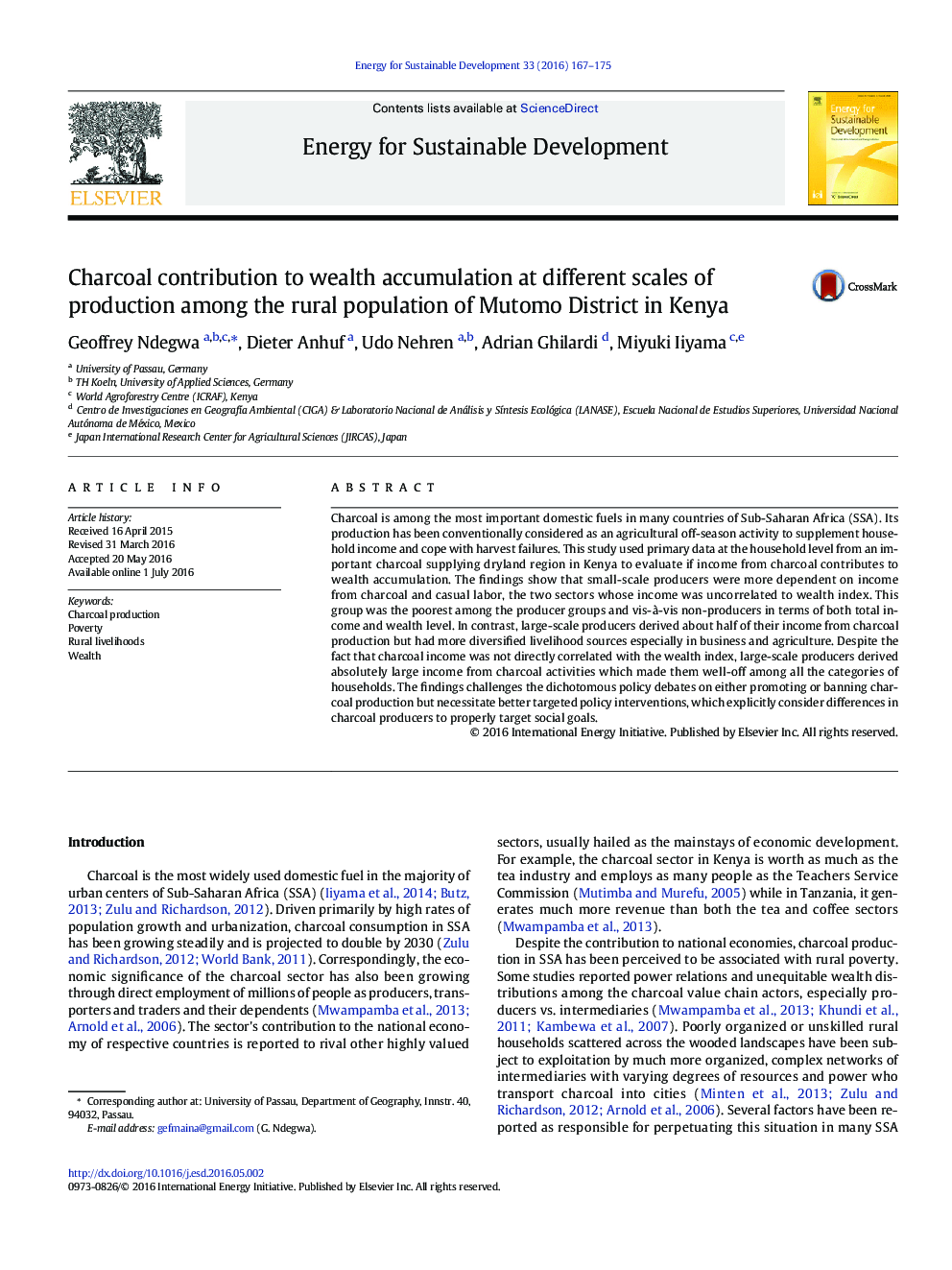| Article ID | Journal | Published Year | Pages | File Type |
|---|---|---|---|---|
| 7453829 | Energy for Sustainable Development | 2016 | 9 Pages |
Abstract
Charcoal is among the most important domestic fuels in many countries of Sub-Saharan Africa (SSA). Its production has been conventionally considered as an agricultural off-season activity to supplement household income and cope with harvest failures. This study used primary data at the household level from an important charcoal supplying dryland region in Kenya to evaluate if income from charcoal contributes to wealth accumulation. The findings show that small-scale producers were more dependent on income from charcoal and casual labor, the two sectors whose income was uncorrelated to wealth index. This group was the poorest among the producer groups and vis-Ã -vis non-producers in terms of both total income and wealth level. In contrast, large-scale producers derived about half of their income from charcoal production but had more diversified livelihood sources especially in business and agriculture. Despite the fact that charcoal income was not directly correlated with the wealth index, large-scale producers derived absolutely large income from charcoal activities which made them well-off among all the categories of households. The findings challenges the dichotomous policy debates on either promoting or banning charcoal production but necessitate better targeted policy interventions, which explicitly consider differences in charcoal producers to properly target social goals.
Related Topics
Physical Sciences and Engineering
Energy
Energy (General)
Authors
Geoffrey Ndegwa, Dieter Anhuf, Udo Nehren, Adrian Ghilardi, Miyuki Iiyama,
